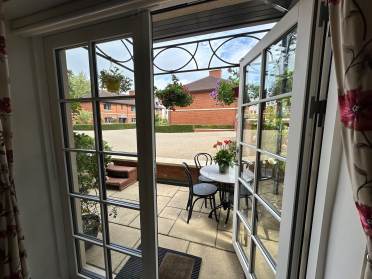More from Nick Sanderson on housing with care, retirement living options and making a difference to the lives of older people in the UK.
There are always rumours flying around about moves the government, or the Treasury, might make to encourage movement in the housing market, and/or improve the dire situation the NHS and social care sector find themselves in after years of chronic underfunding and a pandemic. I’ve already written about the setting up of a taskforce to accelerate the growth of the Housing with Care sector, something that I wholeheartedly support and which cannot get underway soon enough.
The idea being that so many are living in large family homes that are unsuitable for their changing needs, and that this incentive would encourage movement that would free up family homes. Tax breaks are always useful for people looking to move, and I would of course be happy for our potential owners if this were written into policy, but in reality it misses the point.
It’s something we see every day. Demand and desire to move is rarely the issue, most of our prospective owners were held up purely while searching for the right place to live. Somewhere with a strong sense of community, the right property and facilities that can adapt to their changing needs.
The integrated retirement community market, which provides specialist properties with health and wellbeing support as it is needed is chronically underserved. And that’s the real problem.
A JLL report this week found that the UK faces a shortfall in senior living investment of £30bn by 2025, when the number of people over 65 reaches 13.6 million. At a conservative estimate, this will create demand for an additional 75,000 specialist housing units.
But there are ways that the government can act to expedite the process. Specifically, planning rules need to be reformed to mandate age-specific housing, increase supply and only then bring in financial incentives to encourage downsizing. It’s this systematic approach that is needed if we are to provide long-lasting solutions to the housing crisis, not to mention take the pressure off the NHS and social care systems.
Work has started with the government underlining its commitment to more specialist retirement housing, and of course the formation of the aforementioned taskforce. Now planning reform has to be the very first point on the agenda.



































